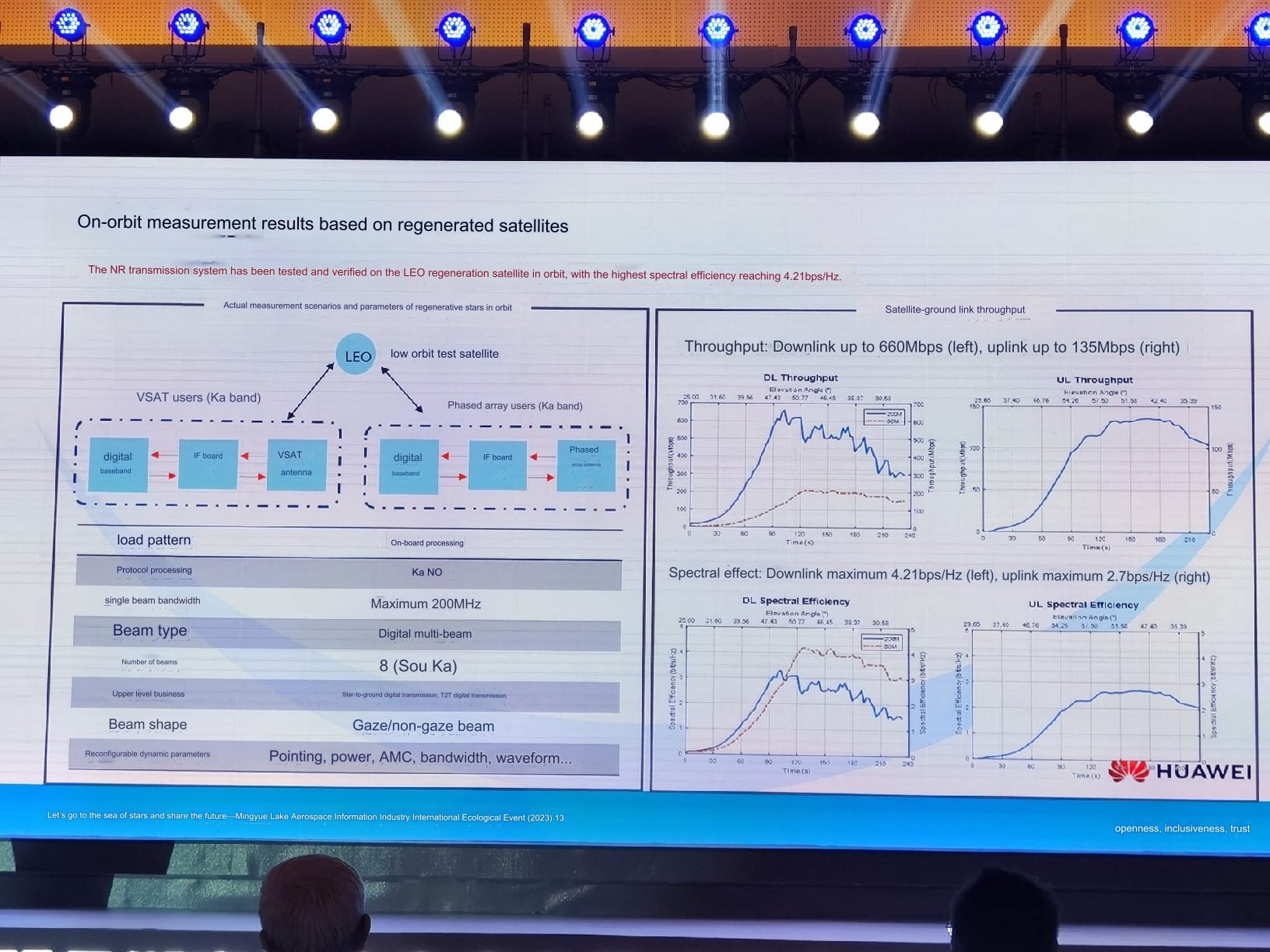Huawei has become one of the few companies in the world to test a low Earth orbit (LEO) satellite internet network similar to SpaceX’s Starlink system, indicating that Huawei is eyeing a rival satellite internet service, most likely for China at first.
Starlink stands as the largest LEO constellation globally, and its substantial size is attributed to the frequent use of SpaceX’s reliable Falcon 9 rocket, making rocket launches an integral part of everyday life in the 21st century.
Huawei’s satellite internet test was first detailed on Weibo, where presentation slides revealed that the LEO satellite test achieved impressive download speeds, reaching up to an impressive 660 Mbps. In contrast, Starlink offers up to 300 Mbps of download speeds, but users typically get up to 220 Mbps.

Wang Jun, the chief scientist of Huawei’s 6G wireless technology laboratory, presented the specifics of Huawei’s LEO satellite internet test during the Aerospace Information Industry International Ecosystem Event in Chongqing, China, held earlier this month.
Huawei has demonstrated a keen interest in satellite connectivity for its smartphones, exemplified by the Mate 60 Pro, which is equipped with the capability to connect with geostationary (GEO) satellites.
Unlike their LEO counterparts, GEO satellites operate at much higher altitudes. The conventional size and design limitations of smartphones make the development of devices capable of connecting with GEO satellites challenging. Moreover, the elevated altitude of GEO satellites imposes restrictions on connection speeds, which is a significant factor driving the efforts of companies like SpaceX to establish LEO constellations for enhanced connectivity.
Additionally, LEO satellites are notably smaller than their GEO alternatives, resulting in reduced manufacturing lead time and complexity. This allows higher network speeds and environmental sustainability, as LEO spacecraft typically burn up in the Earth’s atmosphere in the event of an anomaly.





















